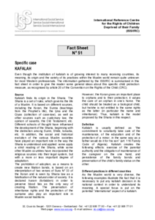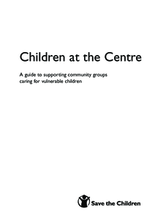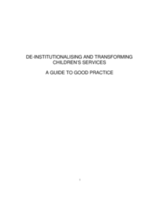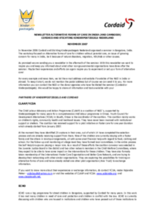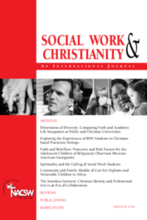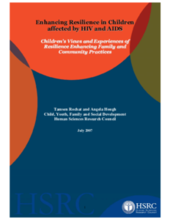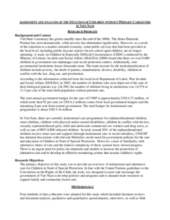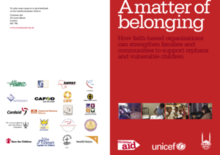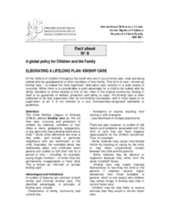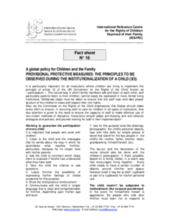Displaying 231 - 240 of 303
Information gathered by the ISS/IRC on the Muslim practice of Kafalah, which serves as a form of long-term fostering and de-facto adoption.
Overview of the role of communities in identifying and protecting vulnerable children, as well as guidance for organizations on how to mobilize and support community groups.
This good practice guide provides a comprehensive description of the steps involved in the process of moving from institutional care to community-based services.
This newsletter is from a seminar on alternative care held in Bangalore, India, in November 2006. Designed to spread information on what organizations have accomplished in the year following the seminar, the newsletter includes specific information on progress and methods, as well as contact information for each organization listed.
Unites scripture and evidence to help guide North American Christians in responding the needs of children affected by HIV/AIDS. Identifies the shortcomings of institutional care and outlines specific and better alternatives available for supporting children in Africa. Highlights related resources for follow-up.
A qualitative research study in the province of KwaZulu-Natal in South Africa to explore children’s experiences of family and community practices that children perceive to enhance their resilience
Overview of institutional and alternative care for Children in Need of Special Protection in Vietnam
A guide for faith-based organizations working in developing countries on issues related to orphans and vulnerable children. Contains examples of successful community-based and family support care programs throughout the world that are run by faith-based groups. Discourages the use of institutional care and orphanages.
A brief fact sheet that provides an overview of kinship care.
A brief 2-page document that highlights the importance of child participation, post care planning, guarding against abuse, and connecting residential institutions with the surrounding community.

